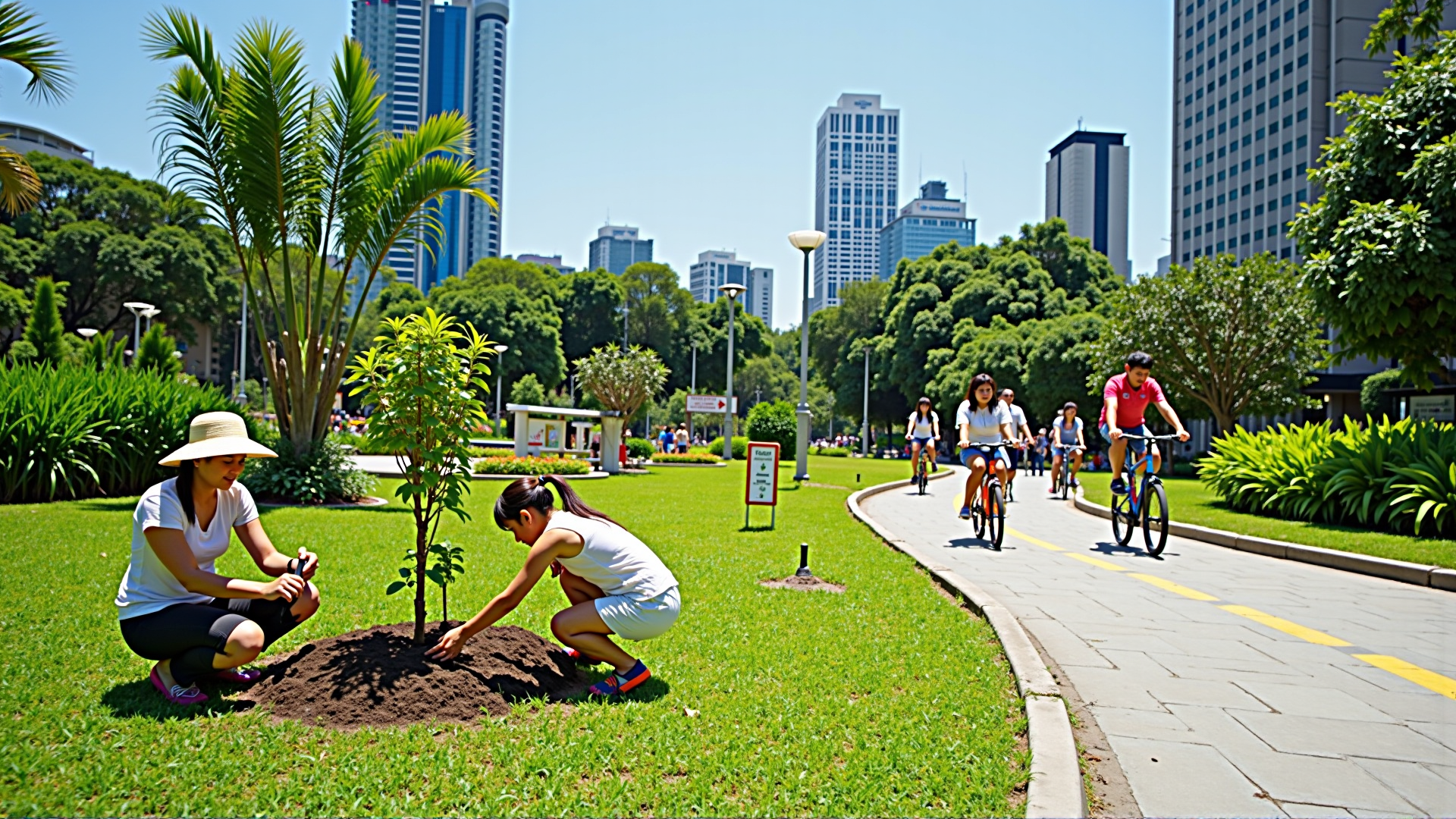The Philippines is emerging as a beacon of sustainability in Southeast Asia, championing a series of innovative eco-friendly initiatives that aim to forge a path towards a greener future. With a rich tapestry of biodiversity and natural landscapes, the country is acutely aware of the environmental challenges it faces and is taking proactive measures to address them.
One of the most noteworthy initiatives is the widespread emphasis on renewable energy. The Philippines is blessed with abundant natural resources, and the government and private sectors are harnessing this potential to reduce reliance on fossil fuels. Solar and wind farms are increasingly becoming part of the landscape, providing clean energy solutions that significantly cut down greenhouse gas emissions. The commitment to sustainable energy not only benefits the environment but also empowers local communities by providing access to affordable energy sources.
In addition to energy initiatives, the Philippines has been at the forefront of sustainable agriculture practices. Filipino farmers are adopting organic farming techniques that rely on natural fertilizers and pest control methods, reducing the harmful impact on both the environment and human health. These practices not only help conserve soil fertility and biodiversity but also ensure safer, healthier food production for future generations.
Coral reef conservation is another area where the Philippines is setting an example. With some of the world's most biodiverse marine ecosystems, efforts are underway to protect and rehabilitate coral reefs. Through programs like coral gardening and the establishment of marine protected areas, the country is working to safeguard these vital underwater habitats. These initiatives help preserve marine life and protect coastal communities from the adverse effects of climate change, such as rising sea levels and severe weather conditions.
Urban areas in the Philippines are also seeing transformative changes with the implementation of eco-friendly infrastructure projects. Public transportation systems are being revamped to include electric vehicles, reducing urban air pollution. Additionally, green building certifications are becoming more common, encouraging the construction of energy-efficient structures that utilize sustainable materials.
Waste management is another critical focus, with local governments and environmental organizations working together to implement robust recycling programs and reduce plastic waste. Community-driven projects encourage citizens to participate actively in waste segregation and promote the use of biodegradable materials. These efforts not only keep waterways clean but also nurture a culture of environmental stewardship among Filipinos.
Educational initiatives play a key role in the Philippines' eco-friendly movement. Schools and universities are integrating environmental education into their curricula, instilling a sense of responsibility and awareness about ecological issues in young generations. This focus on education ensures that the values of sustainability are passed down and that future leaders are well-equipped to continue the fight against environmental degradation.
In conclusion, the Philippines' dedication to ecological preservation is paving the way for a future defined by sustainability and environmental harmony. Through a combination of innovative techniques, community involvement, and a strong commitment to protecting natural resources, the country is setting an example for other nations to follow. These efforts underline the Philippines' resolve to cultivate a world where development and conservation coexist in balance.
